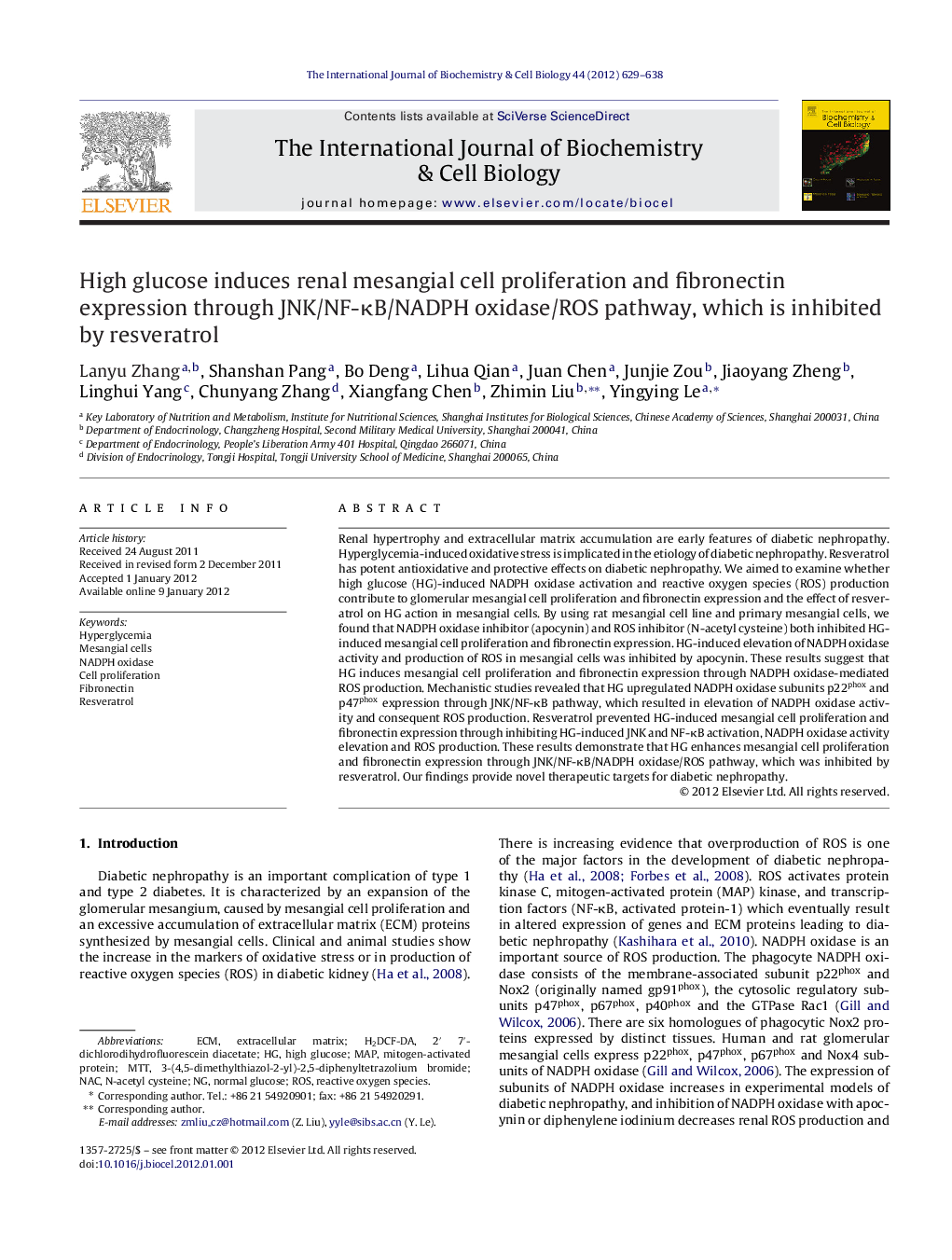| کد مقاله | کد نشریه | سال انتشار | مقاله انگلیسی | نسخه تمام متن |
|---|---|---|---|---|
| 1983868 | 1539919 | 2012 | 10 صفحه PDF | دانلود رایگان |

Renal hypertrophy and extracellular matrix accumulation are early features of diabetic nephropathy. Hyperglycemia-induced oxidative stress is implicated in the etiology of diabetic nephropathy. Resveratrol has potent antioxidative and protective effects on diabetic nephropathy. We aimed to examine whether high glucose (HG)-induced NADPH oxidase activation and reactive oxygen species (ROS) production contribute to glomerular mesangial cell proliferation and fibronectin expression and the effect of resveratrol on HG action in mesangial cells. By using rat mesangial cell line and primary mesangial cells, we found that NADPH oxidase inhibitor (apocynin) and ROS inhibitor (N-acetyl cysteine) both inhibited HG-induced mesangial cell proliferation and fibronectin expression. HG-induced elevation of NADPH oxidase activity and production of ROS in mesangial cells was inhibited by apocynin. These results suggest that HG induces mesangial cell proliferation and fibronectin expression through NADPH oxidase-mediated ROS production. Mechanistic studies revealed that HG upregulated NADPH oxidase subunits p22phox and p47phox expression through JNK/NF-κB pathway, which resulted in elevation of NADPH oxidase activity and consequent ROS production. Resveratrol prevented HG-induced mesangial cell proliferation and fibronectin expression through inhibiting HG-induced JNK and NF-κB activation, NADPH oxidase activity elevation and ROS production. These results demonstrate that HG enhances mesangial cell proliferation and fibronectin expression through JNK/NF-κB/NADPH oxidase/ROS pathway, which was inhibited by resveratrol. Our findings provide novel therapeutic targets for diabetic nephropathy.
Journal: The International Journal of Biochemistry & Cell Biology - Volume 44, Issue 4, April 2012, Pages 629–638